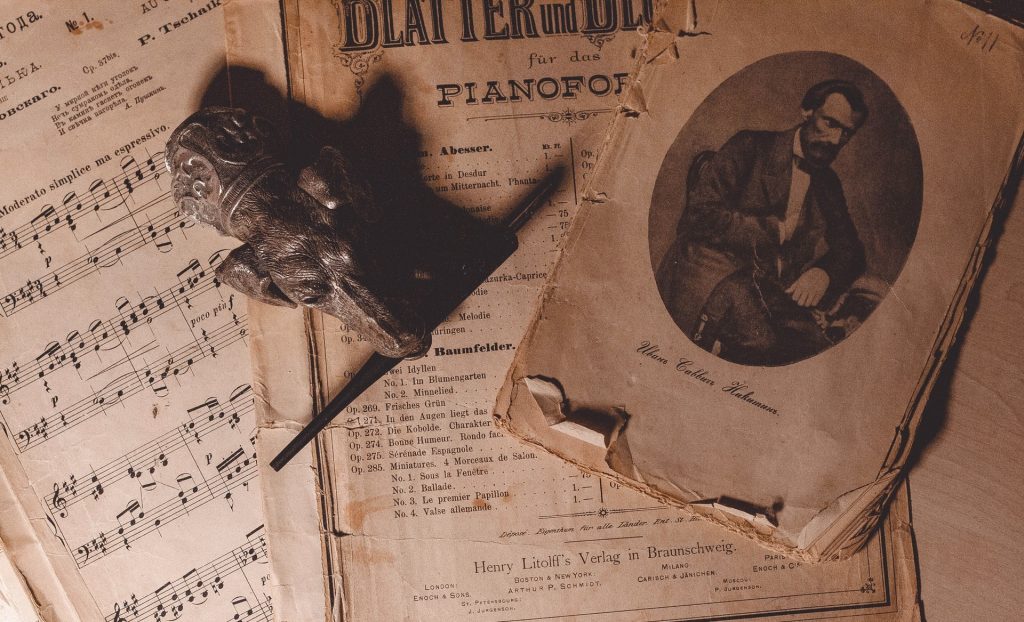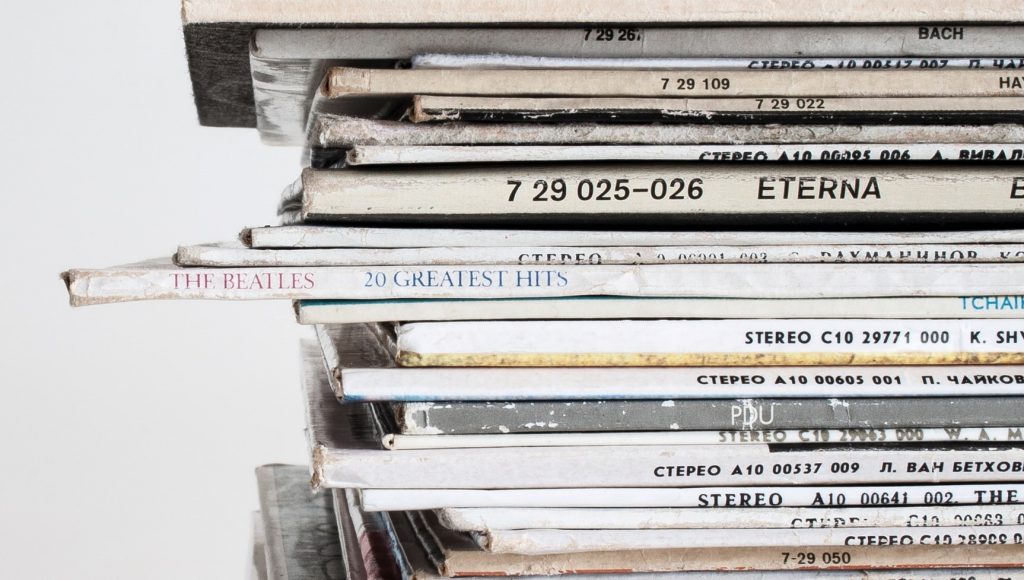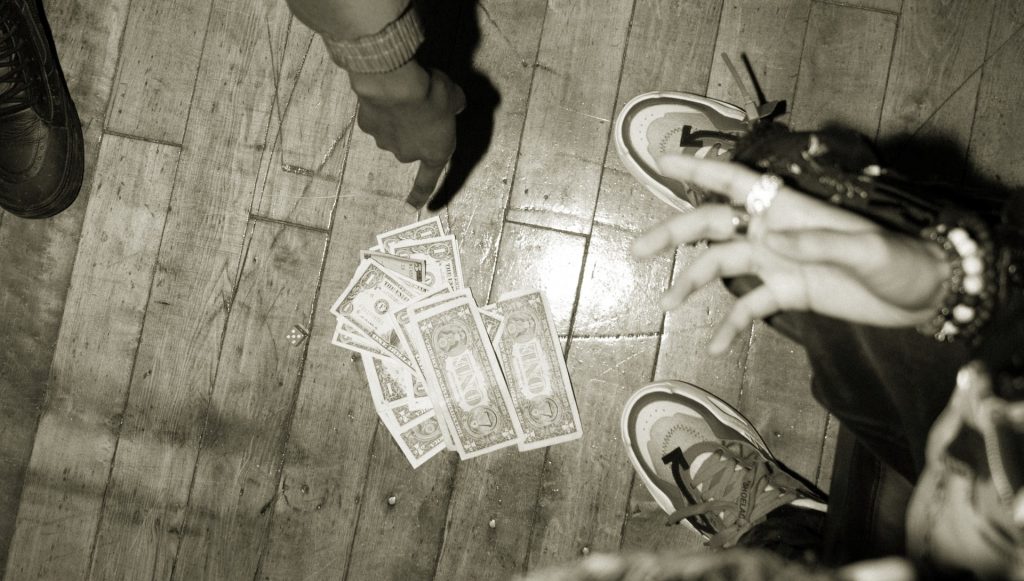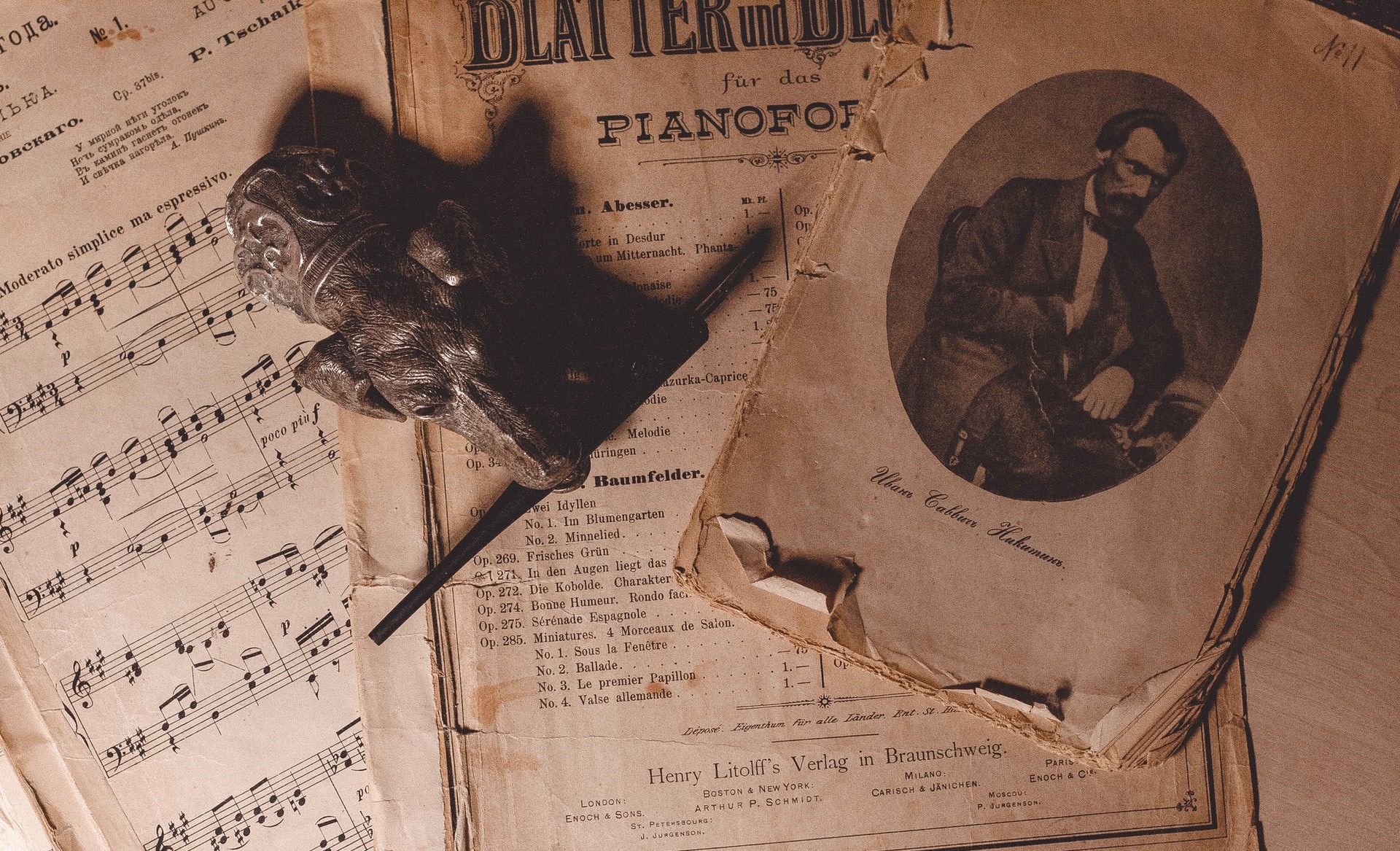If you've been in the music world or writing songs for some time, for example, you'll have heard of music publishers. Feared by many and unknown by many more, these companies are dedicated to trading a product that, in principle, is pure air: music.
 Printed music for music publishers Part allies of artists and part profit-seeking organizations, music publishers are an essential part of the complicated circuit of money, copyrights and music industry professionals.
Printed music for music publishers Part allies of artists and part profit-seeking organizations, music publishers are an essential part of the complicated circuit of money, copyrights and music industry professionals.
The origin
Many, many years ago, a machine called the printing press was invented and, with it, it changed the world. Human knowledge multiplied and could be distributed like never before. Books, ideas and printed music, among other works and miracles, began a journey that continues today. The complex legal and commercial structure related to intellectual creations that today causes tiredness and other boring sensations for song writers, musicians and other sensitive creatures, began at that time, around the 15th century, and has developed since then with the help of creators, artists, lawyers, production and distribution companies and a long list of professionals and opportunists. Intellectual property, copyright, traditional printing presses, record manufacturing companies, intermediaries, record companies or physical and digital distributors, among others, have been forming the complex network that runs through the money generated by music when it is consumed in any of its possible forms. Among all this accumulation of professions, contracts and procedures of all kinds, music publishers play a central role and connect, so to speak, the creative world with the commercial one. Let's see what exactly they do.
What is a music publishing company and what does it do?
Music publishers or publishers are companies dedicated to the marketing of songs and any musical work as the intellectual property of a specific artist or artists. Along with the registration of the works in public or private entities that will attest to their authorship, if necessary, the music publisher will complete the conditions that an instrumental piece or song needs to, legally and commercially, generate income. When a song or piece of music is recorded for an album, for example, the record company or the company or professional that will be the owner of the recording, needs authorization and an agreement with the publisher that has the rights to the works to sell its product, that is, the single, vinyl, CD, … whether in physical or digital format.
 Records with publishing contract
Records with publishing contract
The publishing contract
But, before these companies can do that work, the composer or composers must have a clear agreement with one of them, written and signed by both parties, in which the conditions of that relationship between all participants are established. The publishing contract, which is what we are talking about, will transfer some of your rights as a creator to the publisher so that one or more works can be recorded, performed or used in any of its possible forms in exchange, usually, for a percentage of the profits that these works produce. Among those rights that are transferred are:
The right of reproductionwhich consists of making copies, fixing them on a physical medium such as a CD or vinyl, also known as mechanical reproduction.
The right of distributionwhich would be being able to make the work available to the public in tangible format.
The right of public communicationwhich represents everything that makes it possible for a group of people to have access to the work: the interpretation of the musical work before an audience, broadcast on any radio, reproduction on streaming services, sale of copies in digital format, etc…
Royalties or editorial royalties in music
A royalty is, basically, a mandatory payment for the right to use or exploit someone else's creation. In the case of songwriting royalties, that payment is usually a percentage.
 Money, royalties, songs Let's look at some situations that generate those royalties that publishers collect on behalf of their composers:
Money, royalties, songs Let's look at some situations that generate those royalties that publishers collect on behalf of their composers:
Impression royalties: whenever a score of a composition is printed or the lyrics or music it contains are displayed in any way.
Mechanical royalties: whenever a physical copy of a recording is made.
Public performance royalties: Every time a composition is performed in concert, it plays on radio, television or any public access platform.
Sync royalties: whenever a composition is used as a complement or part of any audiovisual work.
Sampling royalties: whenever a part of any composition or its recording is extracted and included in some way as part of a new work.
Royalties for derivative works: every time a composition is transformed, modified or adapted and results in a different work.
Conclusions
This has been just an introduction to the peculiar and, at times, lucrative world of music publishing and the marketing of original compositions. Writing a song is easy. Writing a good song is harder. Trading songs is complex. A few people, legal entities, commercial entities, etc. are necessarily involved… We are referring directly to the business world, the music business, in this case. It is a completely different area from artistic endeavors, from emotional expression, from communication between humans beyond money. Music publishers are on that border between art and commerce, between musicians and lyricists and the consumers of their works. It is a delicate terrain, often unpleasant for a creative person, but it is the commercial and legal reality of musical works in this time in which we have had to live. If you write music or songs and you want to not only protect your works effectively, but also receive part of the money that others make with them, you are probably going to have to deal with these people and these laws and paperwork. Educate yourself and do it well, even if it costs you some time and tons of boredom. #mailpoet_form_3 .mailpoet_form { } #mailpoet_form_3 .mailpoet_column_with_background { padding: 10px; } #mailpoet_form_3 .mailpoet_form_column:not(:first-child) { margin-left: 20px; } #mailpoet_form_3 .mailpoet_paragraph { line-height: 20px; margin-bottom: 20px; } #mailpoet_form_3 .mailpoet_segment_label, #mailpoet_form_3 .mailpoet_text_label, #mailpoet_form_3 .mailpoet_textarea_label, #mailpoet_form_3 .mailpoet_select_label, #mailpoet_form_3 .mailpoet_radio_label, #mailpoet_form_3 .mailpoet_checkbox_label, 3 .mailpoet_list_label, #mailpoet_form_3 .mailpoet_date_label { display: block; font-weight: normal; } #mailpoet_form_3 .mailpoet_text, #mailpoet_form_3 .mailpoet_textarea, #mailpoet_form_3 .mailpoet_select, #mailpoet_form_3 .mailpoet_date_month, #mailpoet_form_3 .mailpoet_date_day, #mailpoet_form_3 .mailpoet_date_year, #mailpoet_form_3 .mailpoet_date { display :block; } #mailpoet_form_3 .mailpoet_text, #mailpoet_form_3 .mailpoet_textarea { width: 200px; } #mailpoet_form_3 .mailpoet_checkbox { } #mailpoet_form_3 .mailpoet_submit { } #mailpoet_form_3 .mailpoet_divider { } #mailpoet_form_3 .mailpoet_message { } #mailpoet_form_3 .mailpoet_form_loading { width: 30px; text-align: center; line-height: normal; } #mailpoet_form_3 .mailpoet_form_loading > span { width: 5px; height: 5px; background-color: #5b5b5b; }#mailpoet_form_3{border: 1px solid #fcb900;border-radius: 40px;text-align: center;}#mailpoet_form_3 form.mailpoet_form {padding: 20px;}#mailpoet_form_3{width: 70%;}#mailpoet_form_3 .mailpoet_message {margin : 0; padding: 0 20px;}#mailpoet_form_3 .mailpoet_paragraph.last {margin-bottom: 0} @media (max-width: 500px) {#mailpoet_form_3 {background-image: none;}} @media (min-width: 500px) { #mailpoet_form_3 .last .mailpoet_paragraph:last-child {margin-bottom: 0}} @media (max-width: 500px) {#mailpoet_form_3 .mailpoet_form_column:last-child .mailpoet_paragraph:last-child {margin-bottom: 0}} Please leave this field emptyDo you write songs or would you like to?
I have read and accept the Privacy Policy With the Guide «The journey of a song» as a gift Check your inbox or spam folder to confirm your subscription.

